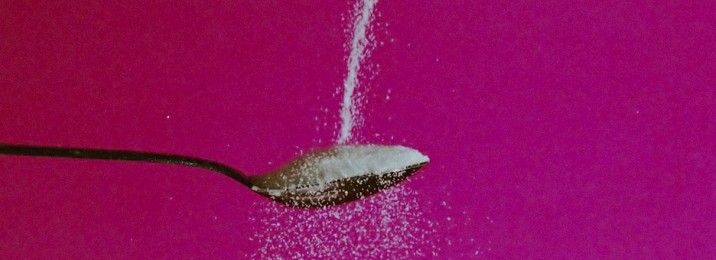Sugar, Cancer’s Best Friend
By Frank Jasper
As it turns out sugar is not such a “sweet” story after all. In the United States the yearly sugar consumption, per individual, has increased over the last two decades from 26 pounds to 135 pounds. Over this same period cancer rates have also increased. Now one in three people will get cancer in his or her lifetime. Before the turn of the century (1887-1890), the average consumption of sugar was only 5 pounds per year and cardiovascular disease and cancer were relatively unknown. Sugar consumption is not the only factor that is responsible for such a sharp increase in the number of cancer related deaths, which hit an astonishing 570,000 per year in 2005. But it does indeed have a direct correlation to cancer growth and expression, a factor that cannot be ignored.
Cancer cells thrive on sugar. They can have up to 55% more receptor sites for sugar than normal cells. And they utilize sugar at rates from 10 to 50 times higher than normal healthy cells (this is referred to as “the Warburg effect”). Normal healthy cells use sugar primarily for energy, cancer cells use sugar for formation of additional nucleic acids (RNA), and production of various proteins needed for cancer cell replication. Bottom line – Sugar feeds Cancer!
In my ongoing research into diet and lifestyle related to cancer I Googled “Cancer’s Sweet tooth” by Patrick Quillin, Ph.D. and what I found was 1,110,000 different articles linking sugar to cancers of all types. Many of these studies state that sugar has been connected with the development of cancer of the breast, ovaries, prostrate, rectum, pancreas, billiary tract, lung, gallbladder and stomach. Sugar can cause hormonal imbalances, which can be directly linked to hormone dominant cancers. It is also a well-documented fact that diets high in sugar will increase free radicals and oxidative stress leading to problems such as immune suppression, cellular breakdown and premature aging.
To many it is surprising to discover that sugar is actually addictive. The latest research shows that sugar is not only addictive, it is more addictive than cocaine. In one study 94% of rats who were previously addicted to cocaine quickly switched to sugar when given the option.
It is important to understand that sugar, and any foods that break down into sugar quickly, should be avoided whenever possible. For cancer patients they should avoided at all cost.
Given all the current information our goal is to starve the cancer cells of their preferred fuel source in order to allow your immune system and whatever debulking therapies, (i.e. Chemotherapy, radiation, and surgery to reduce the bulk of the tumor mass) to catch up to the disease. Once the initial treatment has been completed it is extremely important to continue this approach to prevent any recurrence. This is best accomplished by controlling your blood-glucose levels through diet and life style, including exercise, supplements such as herbs and homeopathics, essential oils, acupuncture, yoga and meditation.
It is estimated that up to 70% of all cancers are diet related. Remember you are the one that ultimately chooses what to put in your body. So please always choose the food and beverage that will have the least impact on your blood-glucose levels and will be most supportive to your immune and nervous systems.
Once you remove sugar from your diet you may feel that you need something to satisfy your sweet cravings. I recommend moderate amounts of organic fruit such as blueberries, raspberries, strawberries, Granny Smith apples etc. These fruits are high in antioxidants and have high fiber content, which will regulate how fast they are broken down and impact the body’s blood-glucose levels.
Drink more water and replace soft drinks with tea. Choose one that is high in antioxidants (i.e. Green tea or white tea) rather than one that has high sugar content. You might also try a fruit flavored herb tea, or chamomile, which can have a very calming and soothing effect.
In addition eating healthy fats and proteins will help you to curb those cravings. A good source of a healthy fat would be organic raw seeds and nuts. It’s a good idea to have these handy to snack on between meals when cravings hit. Olive oil and avocados are also good choices of healthy fats. Eat fish that is wild caught like Salmon for a good combination of a healthy protein and a healthy fat. Sardines combine healthy fats, proteins, and if they have not been deboned can also be nutritionally supportive to bone density. I recommend these with some raw cheddar cheese on some gluten free, wheat free crackers (like Lydia’s). Try this combination its great, or at least I think so. The point is be creative, experiment with different food combinations to find what works best for you.
The good news is when you feed the body with the proper nutrition then sugar cravings will diminish and eventually fade away. And best of all you will have created a life style that promotes good health and longevity.
Frank Jasper, L.Ac.



Great post, very interesting to read. The two things that really jumped out at me are the fact sugar can be just as addicting as cocaine, and that 70% of cancers are diet related. Everyone is so focused on hitting a number on the scale, great reminder on the importance of healthy, smart eating.
Good info Frank. Thanks! Really hard test to cut out sweets around the holidays though.